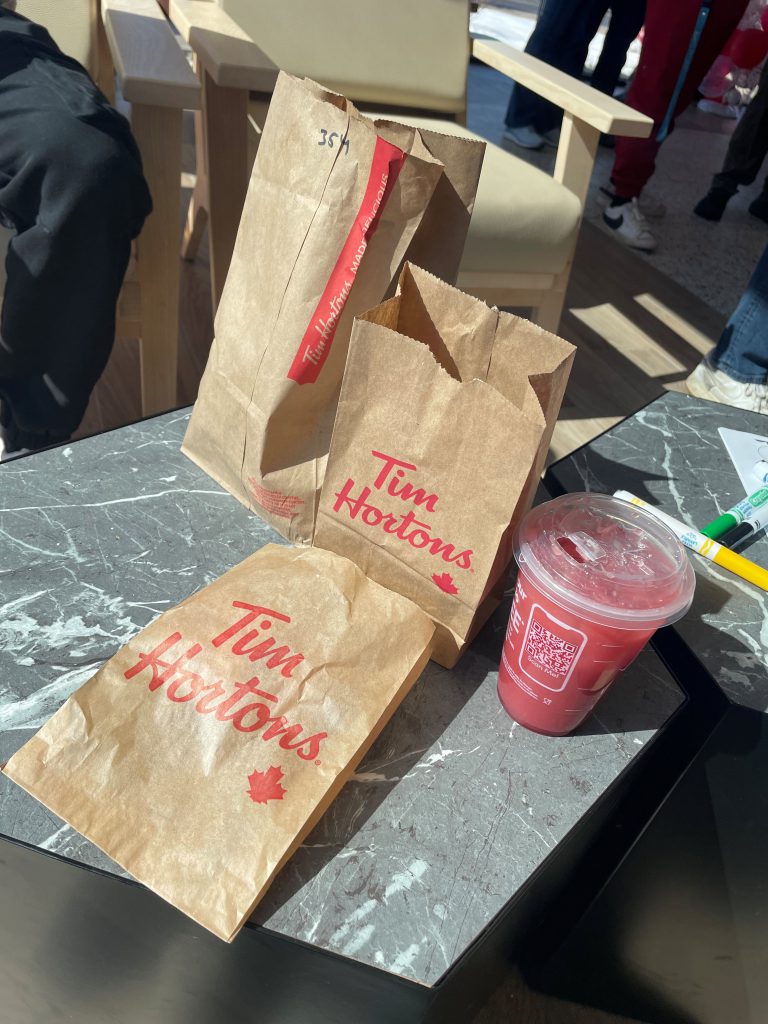Brightening up your living space with aesthetically pleasing plant terrariums has never been easier than with PlantHouse. Located at the Shops at Hilltop of Virginia Beach, PlantHouse is the perfect place to bring all of your do-it-yourself (DIY) Pinterest dreams to life. With a large variety of smaller plants, including succulents and cacti, employees guide you to connect with nature in their terrarium workshops and premium plant store.
“Plants are a common craft that multiple generations can enjoy,” said Bailey Ryan, Founder and CEO of PlantHouse said. “Young or old there is a unique, and often therapeutic, experience available to everyone, whether it be purchasing a low-maintenance plant or building a terrarium.”
Ryan and her family opened their first PlantHouse store in 2018 and have grown rapidly down the east coast ever since. Each location offers experienced employees who are equipped with the knowledge necessary to point customers in the right direction, whether they are beginner plant parents or an expert.
“Whether a customer is looking for a pet-friendly plant, low-light plant or rare plant, we have a vast selection of plants available in our stores,” Ryan said.
When building a do-it-yourself terrarium in their workshop, customers begin with selecting a glass container to house their new plant babies. Each style of container can hold anywhere from two to five plants, depending on the size and type of the plants. PlantHouse creates a monthly lineup of different workshops to enjoy with friends and family.
PlantHouse offers succulents that require soil and thrive in areas with lots of sunlight as well as air plants that do not require soil and absorb all of their nutrients from the surrounding air. Both of these types of plants are considered “low maintenance plants and are easy to care for,” according to PlantHouse employees.
After selecting the style of container and type of plant, customers fill the jar with about an inch or so of small rocks. These small rocks keep the plant’s roots from becoming too saturated in the damp soil and rotting.
Next is a layer of nutrient-enriched soil and the selected plants. PlantHouse employees recommend digging small holes with their provided tools to help build a little home for each plant to sit.
“Our crew is there every step of the way to provide building guidance and plant care tips,” Ryan said.
After planting succulents or cacti, it is time to decorate. Each workshop table is supplied with many boxes filled with all kinds of sand, decorative rocks, fake flowers and little trinkets. Many examples created by employees are decorated with sand and thin layers of colorful rocks. Every terrarium is different and unique to its creator.
If creating on your own is too daunting and you feel you might need more guidance, PlantHouse offers a variety of options outside of walk-in DIY creations. “Our evening workshops are the perfect date night or get-togethers with friends. We offer a range of options every week including Jellyfish Terrarium, Succulent & Sangria, Boozy Bonsai and Dried Floral workshops,” Ryan said.
A popular workshop that has generated interest lately is making a kokedama, which is a Japanese art form that is closely related to bonsai trees.
This practice allows for plants to be treated as hanging air plants or even placed on shelves or tables like other terrariums. The process involves planting a root ball in moss, securing it with twine and growing the plant straight from the ball.
“The term ‘koke’ translates to moss and ‘dama’ translates to the ball,” Ryan said. Workshop offers and other events can be found and signed up for on their website, planthouse.us.
Whether looking to liven up space or just wanting something new to create, PlantHouse is definitely the spot for all things DIY. Come get your hands a little dirty and leave with the aesthetically pleasing terrarium of your dreams!
PlantHouse accepts all walk-ins and reservations for groups at $25 a person. Find them on Instagram @planthousevb.
By Kylea McCarel
ksmccarel@vwu.edu


